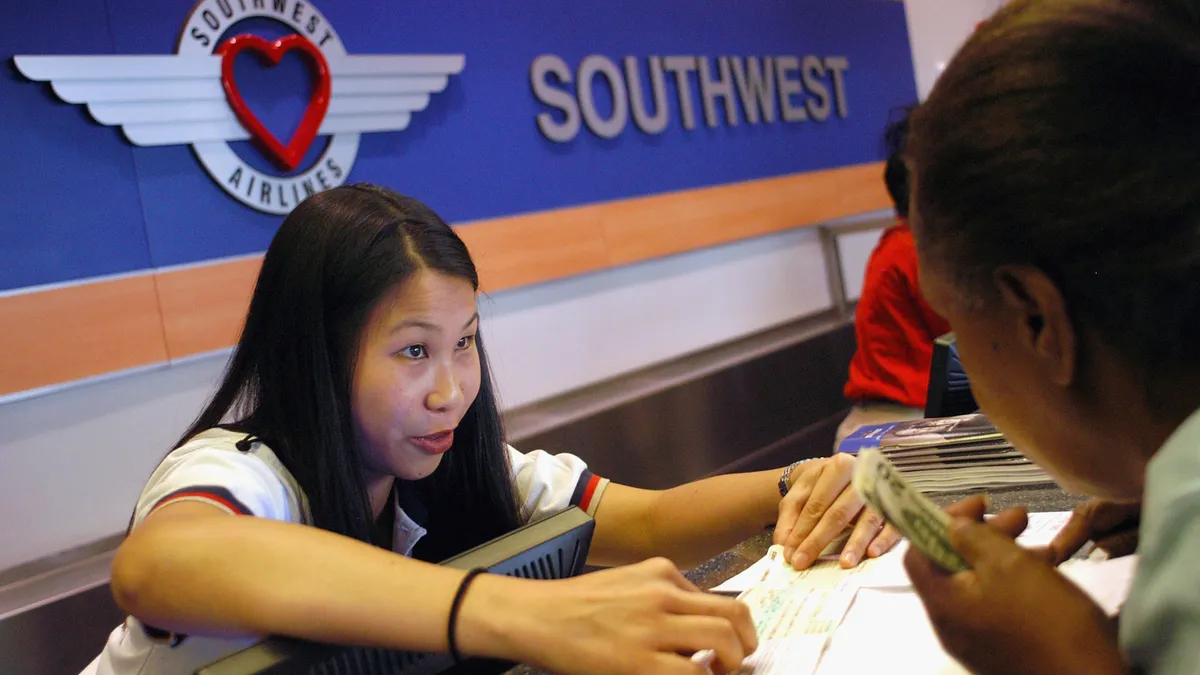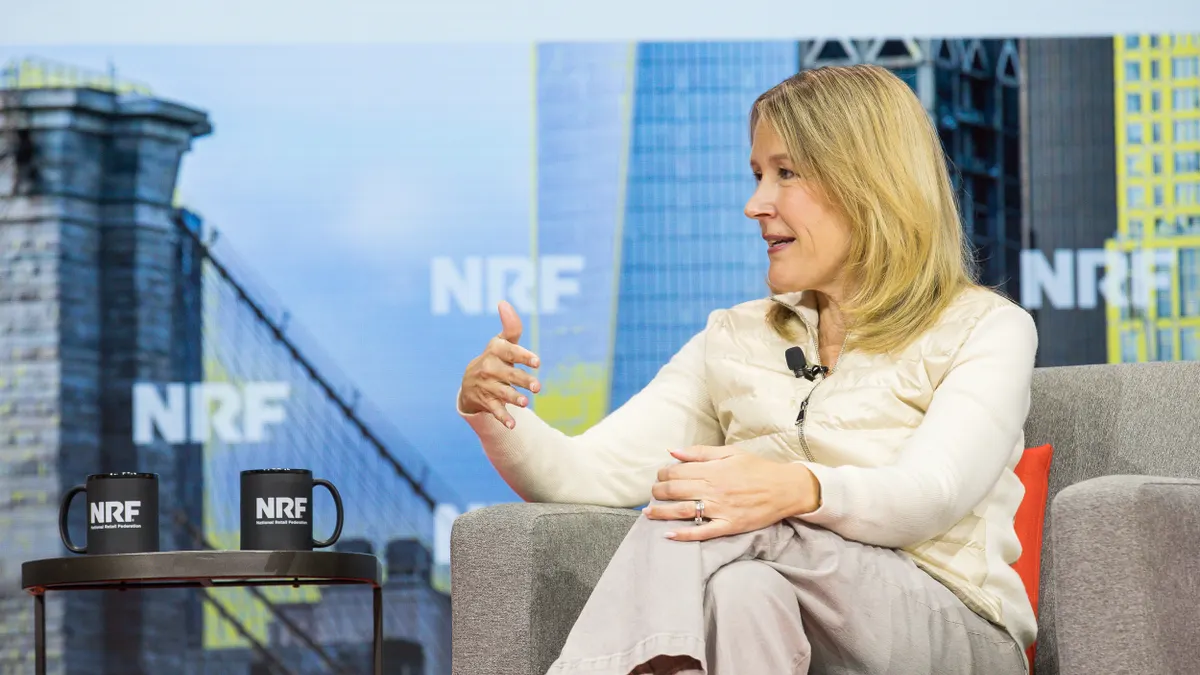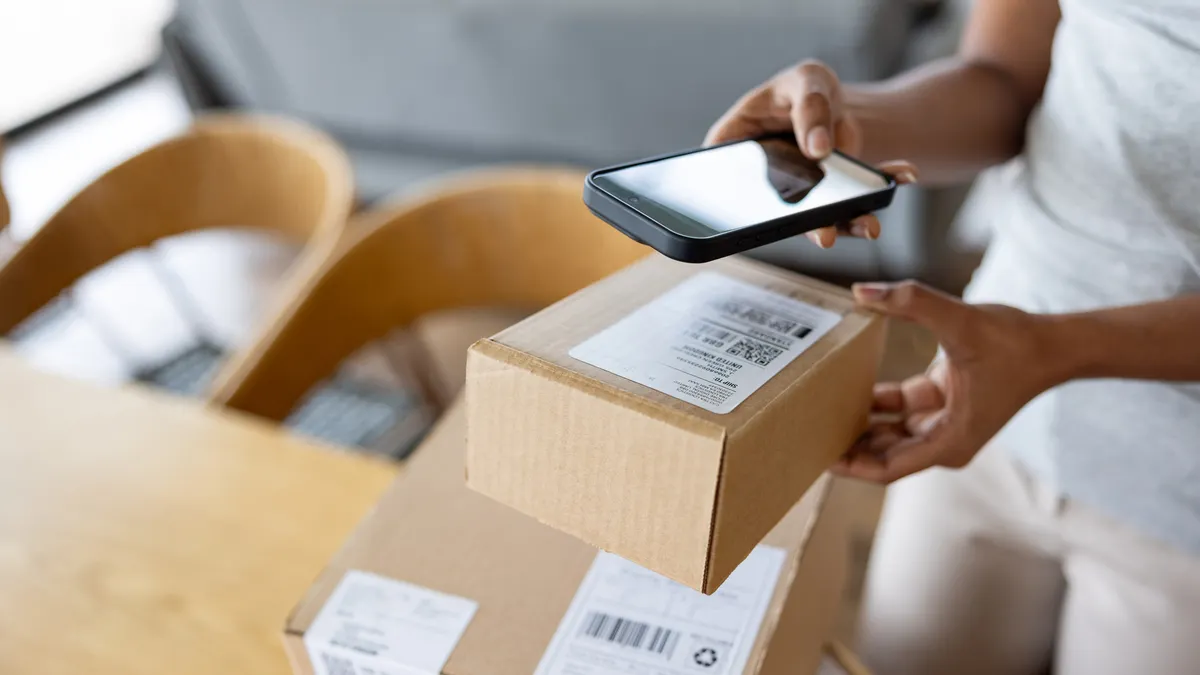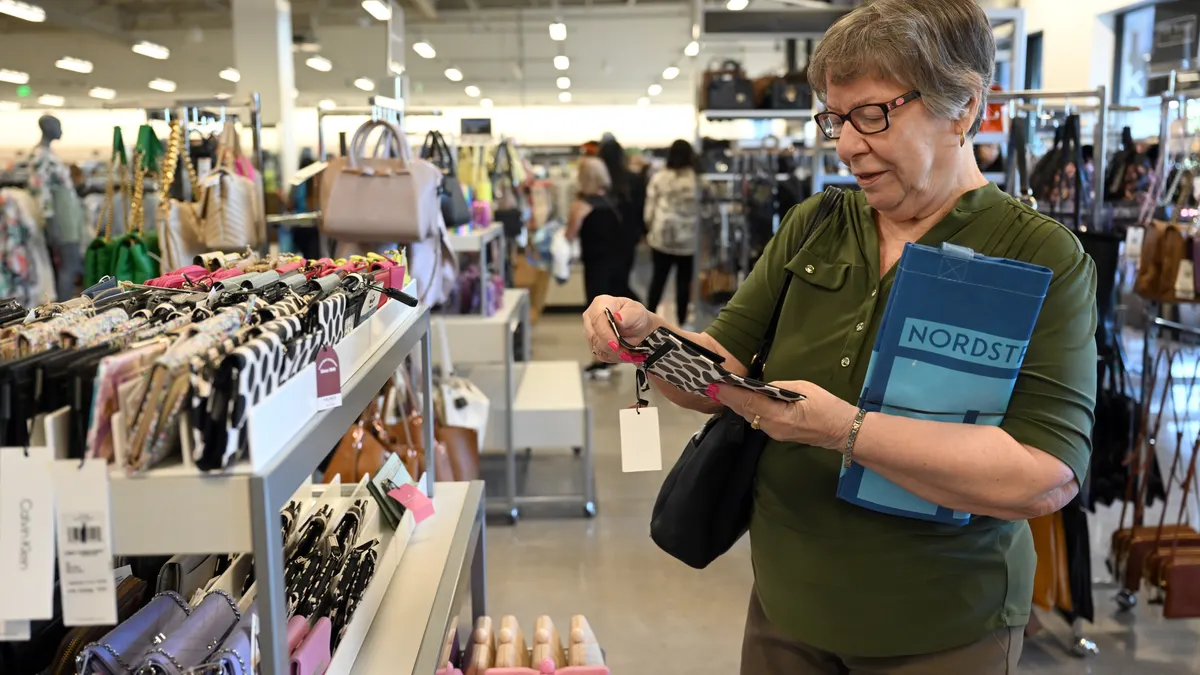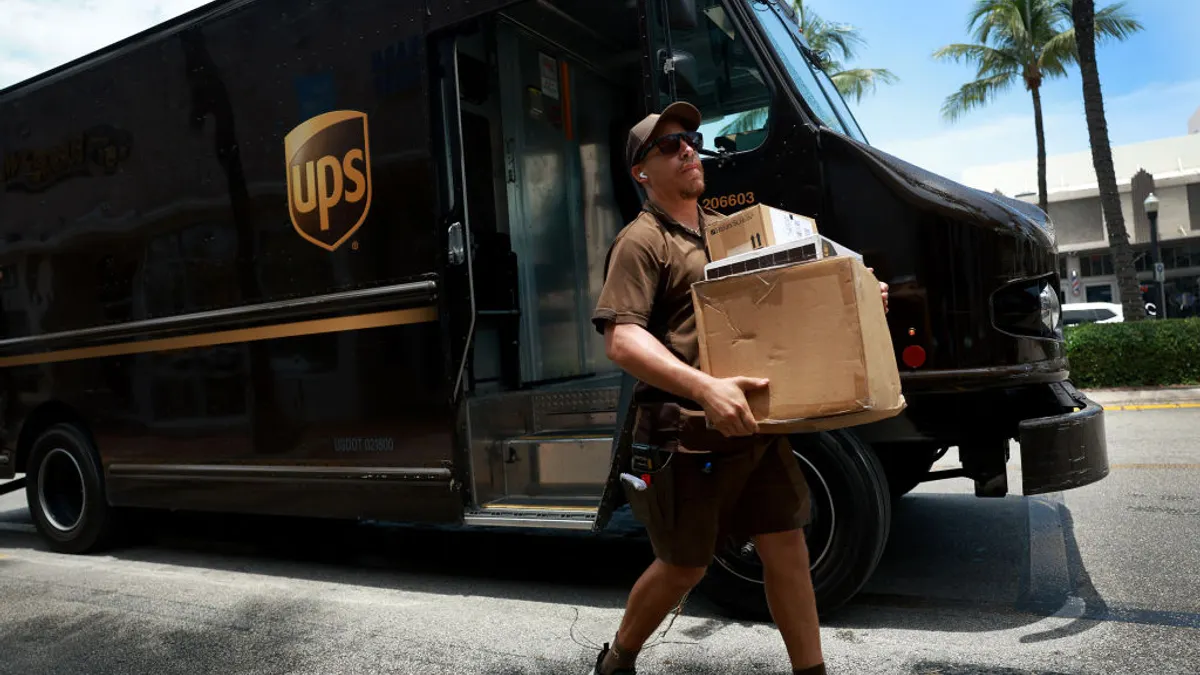The period around Thanksgiving is shaping up to be its busiest ever for air travel and customer experience will take center stage, yet again, as airlines seek to avoid the high-profile mishaps of last year.
The Transportation Security Administration expects 2.9 million passengers on Sunday alone. More than 30 million people are estimated to fly during a 12-day window around the Thanksgiving holiday — the most ever.
Stormy weather last winter caused airlines to cancel flights, leading to travel disruptions and customer experience horror stories during the December holidays. This year, airlines are looking to avoid travel nightmares of passengers stuck at airports with no way of getting home and lost baggage.
Carriers that failed to get a handle on predictable disruptions last year don’t have the luxury of failing customers again this year. They’ll need to provide good customer experiences to keep passengers happy (or at the very least appeased) — and coming back.
Southwest — whose outdated systems were at the heart of the holiday meltdown experienced last year — committed more than $1 billion to updating and maintaining its technology.
It's not alone, either. United, JetBlue, American Airlines and Delta have also promised investments in technology.
The airlines are also focusing on better communication with its passengers and staffing up to prevent further travel delays.
CX Dive reached out to experts in the airline industry and customer experience to ask: How can airlines ensure good CX on the busiest day of the year?
(The comments below have been lightly edited for length and clarity.)
Ashley Reichheld, Wall Street Journal best-selling author, Deloitte Digital principal and leader of Deloitte’s customer and marketing practice for consumer industry
To deliver an exceptional customer experience, airlines need to focus on earning passenger trust.
At an industry level, airlines earn about 20% less trust than the hospitality segment overall which means they are leaving money on the table. When customers trust a brand, they are 1.8 times more likely to purchase from that brand versus the competition and 1.4 times more willing to pay more for that brand.
How can airlines earn trust? In addition to fulfilling their most basic promise — delivering passengers reliably from one destination to another — airlines should focus on treating passengers with humanity and transparency.
If a mother isn’t sitting by her child, make every effort to put them together. If weather is causing a delay, be clear about the impact and share information when it’s available so passengers can make informed choices about their trip.
These efforts will boost trust and ultimately loyalty.
Ross Aimer, CEO of Aero Consulting Experts and retired United Airlines pilot
One of the most important things in the airline industry is on-time departure. Most of us travel by air to get there as fast as we can. They will try to get their flights out on time. What they try to do is add staff, make sure that flights are crewed properly with flight attendants and pilots.
Major airlines have very sophisticated computer systems. As we have experienced in the past, when a computer glitches, it throws everything off balance. Those are some of the things they have worked on after disastrous experiences in past years. They tried to modernize and upgrade their systems as best they could.
Unfortunately, it's not something that can happen overnight.
Airlines are also making sure that the aircrafts are maintained properly. If they already scheduled maintenance on a particular aircraft, particular fleet, that they would do that in advance of days like Thanksgiving or other holidays.
Katy Nastro, travel expert at Going
Despite last year's shambolic experience, airlines have applied learnings into this year's busy holiday season to ensure smoother sailing. Legacy carriers like United have expressed that they've hired more pilots, which has been an Achilles’ heel for airlines in recent years.
More pilots on staff allows for more planes to be flown on reserve, basically coming off the bench if another plane is out of commission. More reserves means airlines can remedy the situation a lot faster, helping to get passengers back on track, which is always a fear especially when traveling in unfavorable weather.
Judy Weader, principal analyst at Forrester
Airlines know this will be an incredibly busy travel season, and they need to show that they’re aware of it. That means things like making sure they have enough staff to help travelers check in, check their luggage and get directed to airport security.
They can’t assume that every person who’s traveling is a road warrior, which means sending clear, relevant, timely alerts and notifications that help passengers navigate every step of that physical journey to their destination airport.
This also extends to the experience at the gate, such as explaining the boarding process, reminding passengers whether their flight offers refreshments or meals, and front-loading the boarding of the row-mates of passengers receiving assistance getting down the jetway.
Airlines need to look at the air travel experience with fresh eyes — not those of people who fly every day, but of those who don’t fly all the time and could be overwhelmed by the stress, lines, and crowds. And when there’s a problem, they need to communicate how they’ll fix it and then fix it as fast as possible.
None of this is rocket science, and it’s really stuff that airlines should be doing to improve the experience year-round, but it takes on a whole new importance when you’re dealing with the significantly higher passenger volume of the holiday season.
Bruce Temkin, head of Qualtrics XM Institute
These high-travel periods are difficult for employees, customers and the overall transportation system, which lacks the excess capacity to adjust to delays and cancelations. …
Airlines need to make sure that they are keeping passengers up to date with proactive notifications of flight delays and wait times in security lines. …
At the airport, airline staff need to provide regular messages about the flight status and boarding process. And they need to proactively acknowledge the overcrowding and explain that it’s unavoidable given the vacation travel volume. Not only will the gate areas be very busy, but there are likely to be a large number of inexperienced travelers, so they will need reassurance that everything is okay.
If there are delays, keep travelers up to date with regular status updates. Stress levels and anxiety grow the longer passengers have to wait between updates. And don’t get caught off guard by weather or other uncontrollable system disruptions. They have a compounding impact in these times as there are fewer rebooking options and people are already stressed.
Consider increasing incentives for people to give up their seats and proactively providing compensation to affected passengers.
If there are issues, airlines should consider what we call the CARES model:
- Communication: clearly communicate the process and set expectations.
- Accountability: take responsibility for fixing the problem or getting an answer.
- Responsiveness: don’t make the customer wait for your communication or a solution.
- Empathy: acknowledge the impact that the situation has on the customer.
- Solution: at the end of the day, make sure to solve the issue or answer the question.
Correction: A previous version of this article incorrectly identified the number of experts interviewed. CX Dive spoke with five experts.


